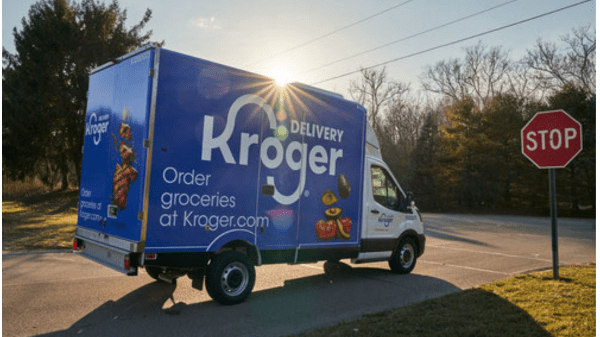A report from Bloomberg set off rumors that a merger between Kroger BB #:100073 and Albertsons BB #:193326 – by far the two largest supermarket companies in the U.S. – could be announced as early as this week.
Kroger, which operates 2,742 stores, and Albertsons, which operates 2,277 stores, according to rankings by Supermarket News, combined would make the largest grocer in the U.S.
Bentonville, AR-based Walmart Inc. has 4,662 stores in the U.S., as of Oct. 3.
This wouldn’t be the first big merger in recent history for Albertsons. The Boise-based company completed its acquisition of Pleasanton, CA-based Safeway in early 2015.
Neither company has confirmed the information being reported by the Wall Stret Journal, CNBC, Bloomberg, and Reuters, though the WSJ says a potential merger would face “deep antitrust review,” “especially because the two companies operate in many of the same areas including Southern California, Texas, and Chicago.”
Stores in those overlapping markets would reportedly be divested.
The deal is “hardly surprising,” according to retail analyst Neil Saunders managing director of GlobalData Retail, who told Reuters “such consolidation would, in theory, improve the economics for both businesses, giving them even more buying power than they currently enjoy.”
While the economics may make sense, from a consumer standpoint Albertsons and Kroger haven’t exactly been thrillers when it comes to shopper experience and reputation.
Over and over again, regional — often privately-owned – grocers rank highest in consumer satisfaction, employee satisfaction and retention, and prestige. Think of all the times we’ve seen Publix, Hy-Vee, H-E-B, and Wegmans top lists like Best Places to Work, and Best Supermarket in America. Smaller chains like Arkansas-based Harps, Sacramento-based Nugget Market, and Massachusetts-based Market Basket are more examples of clearly-differentiated, well-loved retailers on the up swing in popularity.
This tells me Kroger and Albertsons merging wouldn’t cause too many disruptions on the shopper side. It also paints a clearer picture about the locations where Kroger has expanded its hub-and-spoke e-commerce. My local grocery market, Austin, TX, hasn’t had a Kroger presence in decades. All of a sudden, there are billboards all over town promoting Kroger’s grocery delivery.
We also happen to have Albertsons-owned, but formerly Safeway-owned Randalls banner floundering in a very-distant third place to H-E-B and Walmart’s market dominance. Wouldn’t it be convenient to slide those right under Kroger’s sphere of influence?
I bet if we looked at the other markets where Kroger has expanded without a physical presence, a fair number of them might have some Albertsons or Safeway physical stores.
Kroger scouts, perhaps?
If Kroger and Albertsons were to merge, the leveraged buying power would be significant. The growing pains of integrating two massive retailers together also would be significant.
This is definitely an exciting turn of events in the grocery world. I’m still waiting for Amazon to make something interesting out of its Whole Foods acquisition, five years after the fact.



